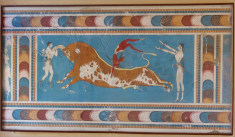Speaker
Description
Advanced machine learning methods are increasingly used in CMS physics analyses to maximize the sensitivity of a wide range of measurements. The landscape is diverse in terms of both methods and applications. Deep learning methods, from recurrent LSTM architectures for classification tasks to deep autoencoders for data quality monitoring, have greatly improved the physics results delivered from the CMS experiment. Algorithms are developed both for collaboration-wide use as well as for individual physics analyses. Many marquee results from CMS, like the measurement of the Higgs boson’s properties in the diphoton decay channel, exploit a multitude of different machine learning algorithms to reduce the uncertainties on measured properties of the Higgs boson.
Details
Samuel May
University of California, San Diego, USA
| Is this abstract from experiment? | Yes |
|---|---|
| Name of experiment and experimental site | CMS, CERN |
| Is the speaker for that presentation defined? | Yes |
| Internet talk | Yes |
